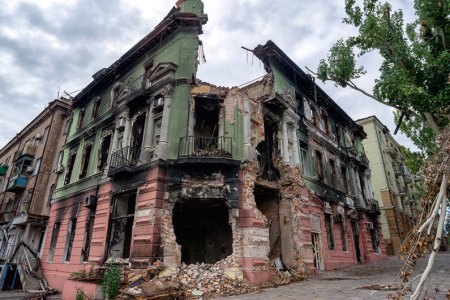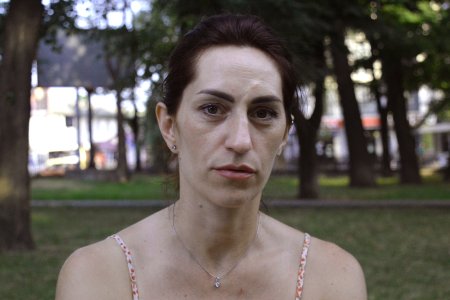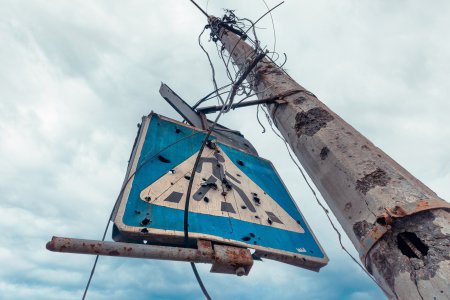Nataliia and Oleksandr, now we are in Kharkiv, but you live in Vovchansk. And you lived there throughout the entire time of the occupation.
Nataliia: Yes, we lived in occupation for six and a half months or 200 days.
Can you remember how the occupation began for you?
Oleksandr: The occupation began with a huge shock because, at 4 in the morning, we heard the sound of rockets that flew over us. That is, we woke up from an incomprehensible noise. And these, as it turned out later, were rockets that flew over Vovchansk, over our village Vovchanski Khutory. All that was left was noise and light. Above us, missiles flew toward Kharkiv, towards other cities in Ukraine.
Nataliia: By 7 o’clock, tanks went through our village toward Kharkiv.
Oleksandr: They calmly stopped near our supermarket in Vovchansk, went to the store, and made purchases. And then drove on toward Kharkiv. At first, I remember they asked the policemen to go to work to continue patrolling the streets. City Council — to continue to deal with communal affairs.
We first gathered deputies and conducted work convincing owners that opening shops and pharmacies were necessary. We did it to relieve stress in people. Because in the early days, everything began to close, and people emptied the stores. When the bridge in Stary Saltov was blown up, we became completely cut off from Kharkiv. Food, medicine, or fuel was not delivered. They didn’t bring anything and immediately closed all the ATMs. People could not even withdraw the money they had. Salaries, pensions. It was the first shock.
Did the Russians come to you?
Oleksandr: Yes, they came to us repeatedly. They came to us five times. First, they came to ask about hunting weapons. It was in the first weeks. They said that for hostilities and martial law duration, it is necessary to hand over hunting weapons to the Vovchansk district police department. So they came, seized riffles, and took them there.
Nataliia: But at the same time, they did not give any receipts. They even arrived without a pen and paper. We took out a notebook and gave them a pen so they could write down the data. The FSB came once. They came to search us because our son is an officer of the Armed Forces of Ukraine. Someone told them about it, they arrived and the first question was: “Where is your eldest son?” And then: “Show me the room of the eldest son.” They searched the house and all the outbuildings in the yard.
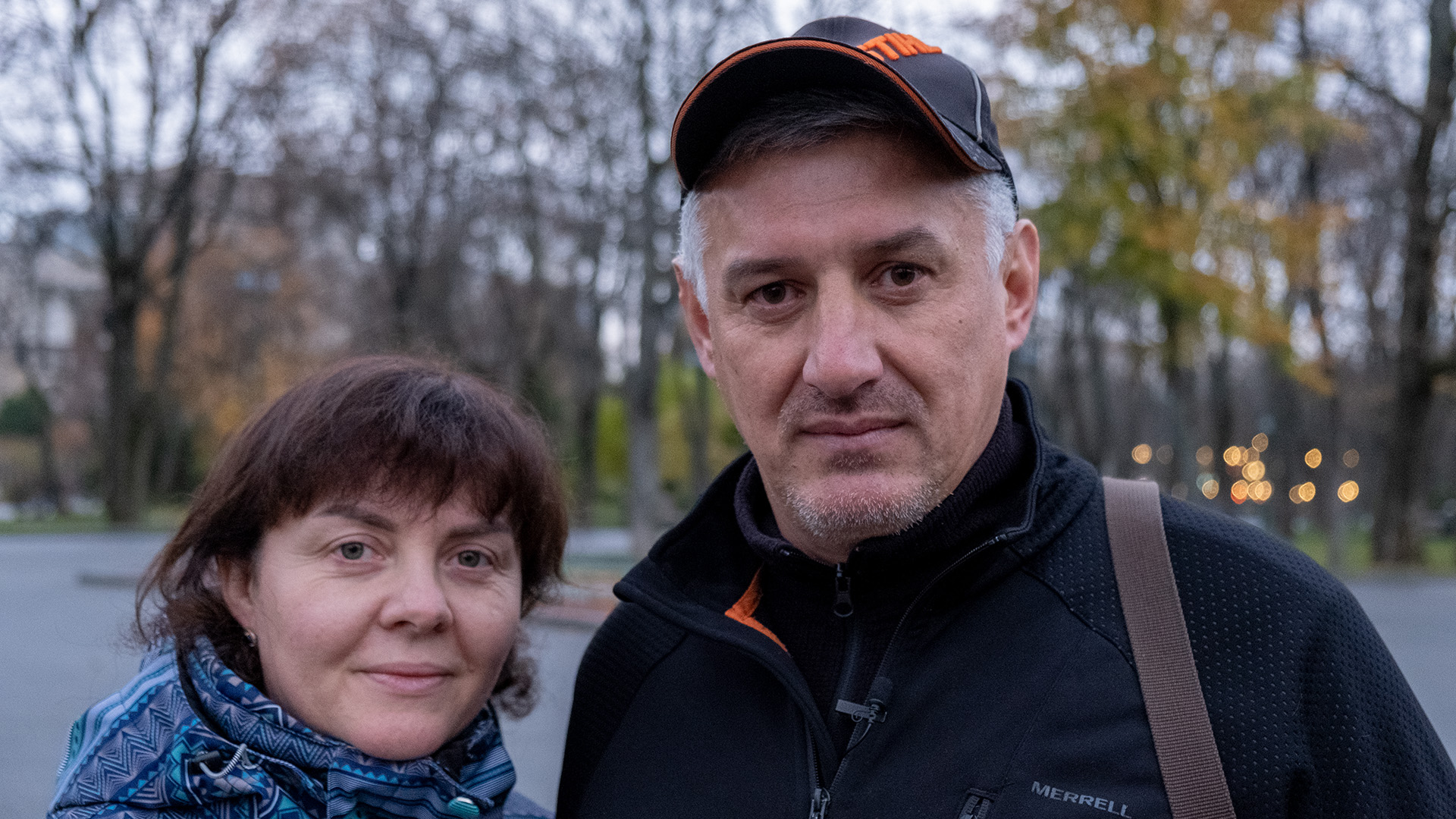
Did they manage to find something?
Oleksandr: Yes, they did. We have some state symbols left from our son, chevrons. The flag was found in his room. I told them nothing was surprising in it, to which they replied: “Don’t worry, you won’t have this soon,” — the state symbols. This was the attitude. I can’t even imagine what they meant because each state has its symbolism, whatever state there is. These are a flag, coat of arms, or language.
Nataliia, I know you work as the head teacher for education at a local school.
Nataliia: Yes.
Now they say a lot that teachers have started working with Russians. But you refused.
Nataliia: Yes, I refused to cooperate. We were the last to be called to write statements. We were on vacation until 10 August, but on 29 July, the school’s principal called us and said that we had to write letters of resignation from the Ukrainian school because we would be handing over seals. They will be disposed of. Then she said that everyone writes applications for resignation, but here are applications that people write to go to work in a Russian school. To which we replied that we would not go to work. The director told us that everyone makes their own choice.
We didn’t cooperate. Only three of us out of the teaching staff didn’t apply. And the rest did.
Oleksandr: We were going to leave several times. Once, we wanted to escape through the remaining bridge in the village of Rubizhne. We have already agreed to leave in convoy. But this column came under fire on the day we decided, and many died there. And so we stayed. One more time, we wanted to leave for Europe through Russia to return to Ukraine. But our parents are elderly, and I was afraid that the FSB would not let me through the Russian border because the list of all the deputies had already been compiled in the village. If the FSB had come with a check, they could detain me. We know examples of people who traveled, were detained, and then ended up in prison, where they were tortured and interrogated. There were many such cases.
And what was life like in your community during the occupation?
Oleksandr: It was tough because we were without electricity for a long time. From 7 April to 10 June, we lived without electricity. More than two months — it was hard for people. In addition, there were no products. There were no medicines. I’m not talking about doctors and specialists. Because a lot of people left. Many doctors have gone abroad.
Nataliia: In order not to cooperate with the Russians.
And could the Russians detain someone on the street? If yes, then why?
Oleksandr: Yes, people could be detained if they went without documents. They could have been arrested for not observing the curfew. In summer, the curfew began at 20:00. It was early. At the very beginning, there was complete anarchy.
I think you have been waiting for the return of the Ukrainian army for a long time.
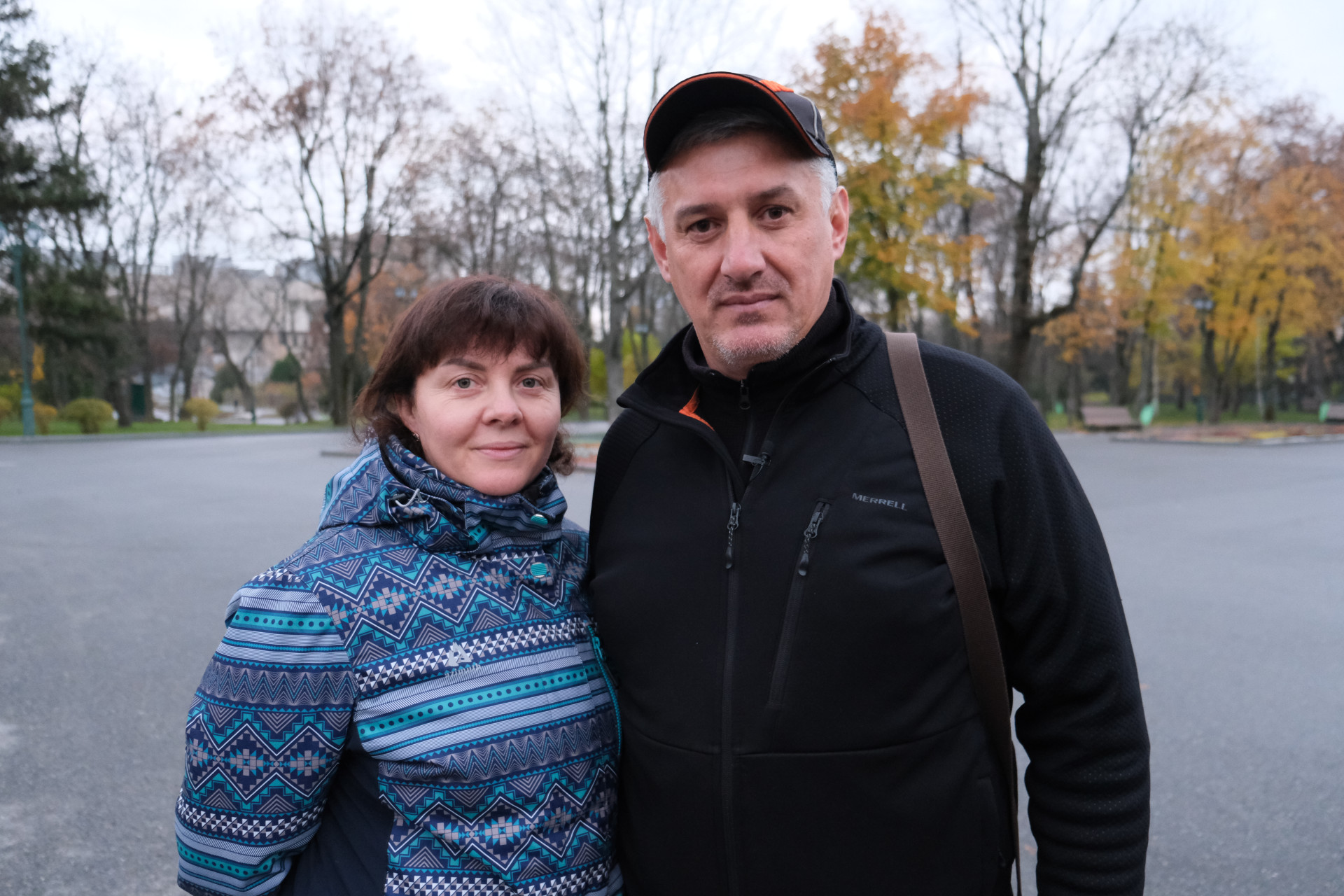
Nataliia: Very! But from the first days, I said that our guys would come. They answered me: “You don’t understand, you are sitting at home, you don’t understand anything. We walk around Vovchansk and see that this is all — they have come forever.” I answered: “No, our guys will come. Unavoidably!” We will never forget 10 September; it still stands before our eyes. I was preparing dinner, and Sasha came in and said to hurry as we have to get the cellar ready — you never know ... There will be fights. We did not know how everything would happen. I said: “Sasha, wait!” I started squealing, shouting: “Hurrah!” The time has come. The Russian military had no time to fight back as they had to run.
Oleksandr: They all quickly packed up — in 20 minutes, as we were told. In an hour or two, everyone left Volchansk. Vovchansk was utterly deserted.
Nataliia: liberated from Russian troops.
Without a single shot?
Oleksandr: Yes, everything happened without a single shot. But then, a few days passed, and shelling began, which, unfortunately, continues to this day. They are shelling all villages. They are shooting at Volchansk. Although, I did not see the accumulation of equipment here. Sometimes the soldiers come and go. What are they shooting at? People are dying in peaceful homes. Once, we came under fire, and a girl died before our eyes. Her child remains. It happened in broad daylight. At first, they only fired at night.
Nataliia: After one in the morning, we used to wait for shelling. And now, from morning to evening, they shoot wherever they want.
Oleksandr: Of course, it became more arduous because of the shelling. But we breathe easier and feel better.
Where are the collaborators now?
Oleksandr: It was decided by the court — which is a collaborator, which is not. I believe most have fled. 90% fled. They left for Russia. According to rumors, many are sorry and want to return home, the majority. Many are returning: we heard that they returned through Sumy. Many came to our village but returned on foot across the border a week later. Many came to Kharkiv through Europe. After living there, people understand that this is not their place, not their homeland. There is an entirely different life, not our life.
You said there are telegram channels where people with a pro-Ukrainian position in Volchansk are published. And you even got there twice, right?
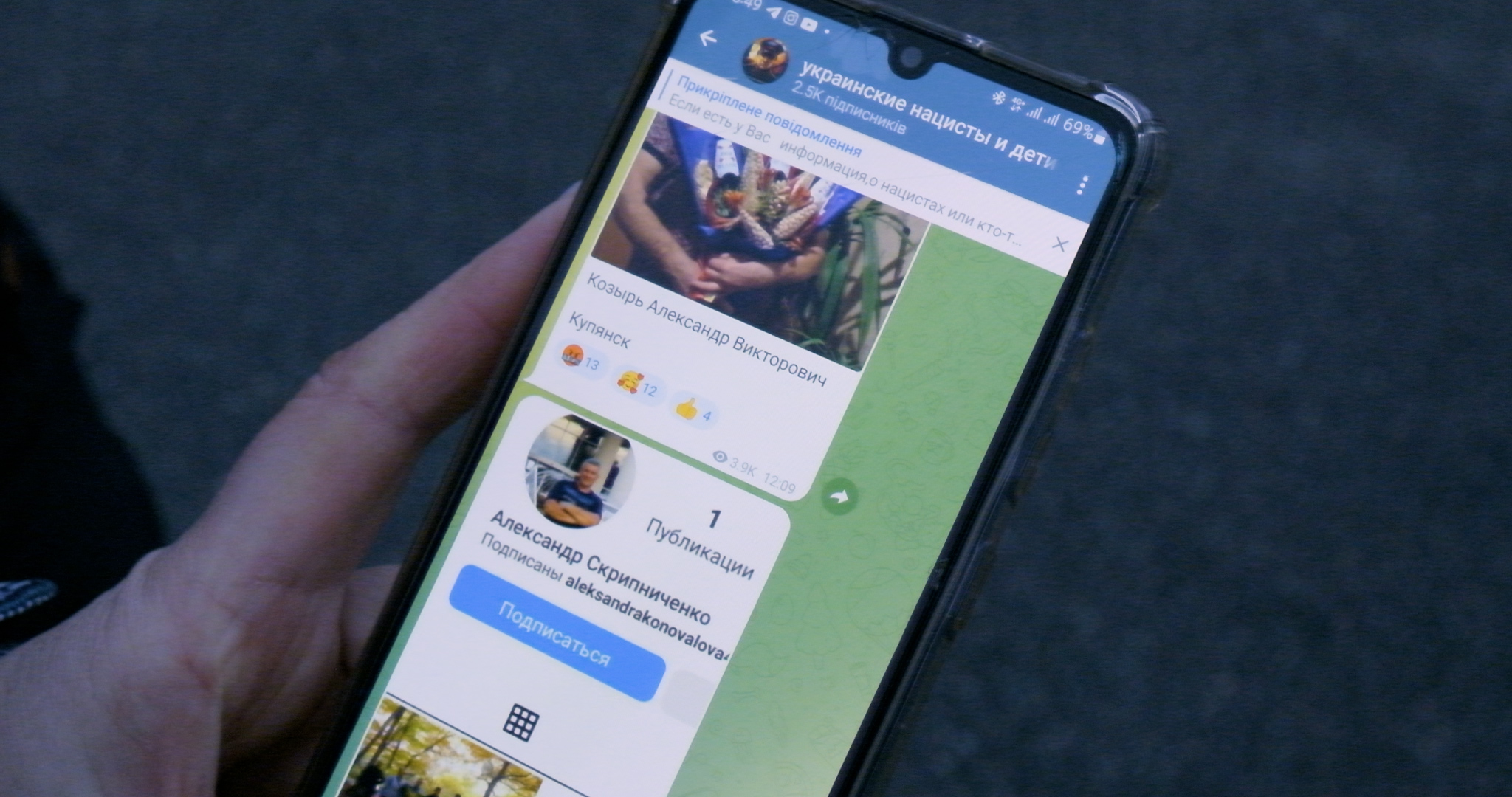
Oleksandr: Yes. We didn’t see it because we have lousy internet, but friends sent it to us twice. They sent us different photos twice, where the three of us are with our eldest son. But we cannot understand: what kind of Bandera people are we? What kind of Nazis? We live in Ukraine, at home, in our homeland, where we grew up and were born and raised by our parents.
Nataliia: And we love our Motherland.
